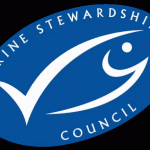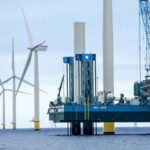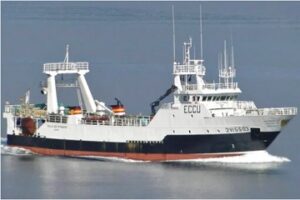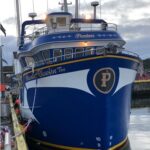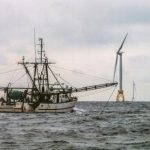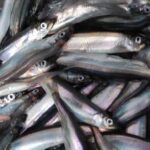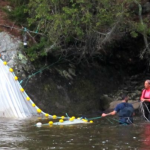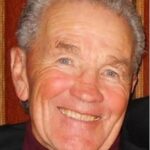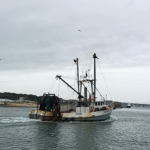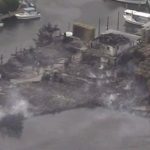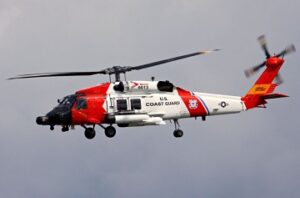Daily Archives: August 21, 2017
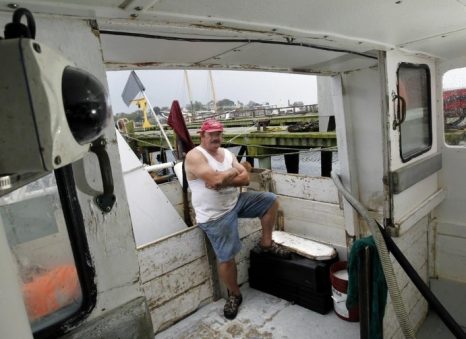
Mass delegation supports putting Carlos Rafael’s forfeiture toward electronic monitoring
John Bullard wants to arm fishing vessels with a smartphone — figuratively speaking. “Nobody has rotary phones anymore, we just assume smartphones are the way we communicate and all the benefits of smartphones we’ve come to expect as normal,” Bullard said. ”(Electronic monitoring) is what we’re going to transition to, but it’s going to take time.” NOAA’s Northeast Regional director said he believes current methods can lead to inaccurate science. Last week, NOAA conducted a fishing stock assessment meeting in New Bedford where similar concerns of bad science emerged. The root of the concern was data from false reports. Electronic monitoring, specifically cameras on vessels, would provide accurate information. click here to read the story 21:39
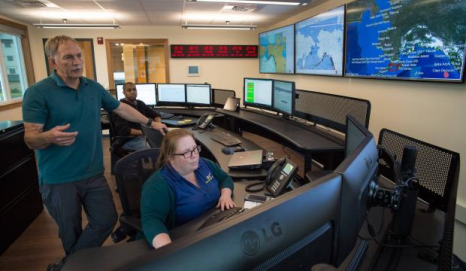
State-of-the-art facility in Harris Harbor matches boat watcher’s growth
Captain Ed Page, the Executive Director of the Marine Exchange of Alaska, stood on the roof of their new $4-million facility on the edge of Harris Harbor.,, The private nonprofit has just moved in and started operations from their new location last week. MXAK monitors vessels — everything from huge cargo ships to fishing vessels and Native whaling boats — on more square miles of ocean than any organization of its kind in the world. It’s an area stretching from the Dixon Entrance to the Beaufort Sea. click here to read the story 18:01
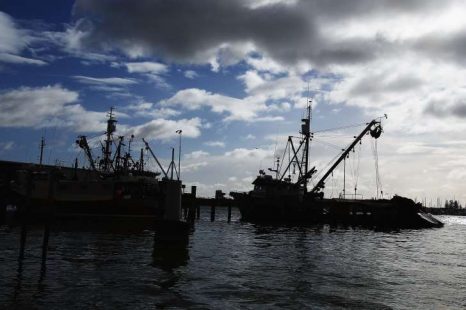
Cameras on boats ‘an invasion of privacy’
A group of fishermen could be heading to court to fight a plan to use cameras and GPS trackers to monitor commercial trawlers. Consultation by the Ministry for Primary Industries on the first phase of the rollout of the new technology closed yesterday. Some fishermen claim the cost and time involved could put many people out of business. New regulations, which start to apply next year, involve installing cameras and GPS technology on 1200 fishing boats in Southland. A group of 70 fishermen, mainly from Southland, have each pledged $1000 towards a legal fight to stop the move, with a decision due this week on whether to head to court. Bluff fisherman Chris Black said they were being treated worse than criminals. click here to read the story 15:44
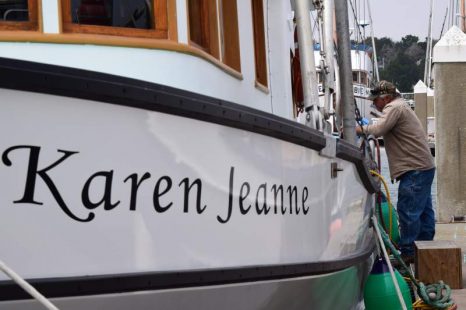
Drought years cut North Coast salmon population
Soon after the commercial salmon season opened on Aug. 1, Chris Lawson steered his 53-foot boat named Seaward out of the marina at Bodega Bay into ocean waters where he figured chinook salmon would travel. He spent the day trolling, his lines carefully prepared to entice the spirited, iridescent fish. There were plenty of salmon, but mostly two-year-olds too small for a commercial fisherman to keep. Lawson shook off nearly 100 short fish from his lines and kept just seven longer than the minimum size — 27 inches. He snagged $9 a pound for 63 pounds, yielding $567 for the day’s work before fuel expenses and pay to one crew member, who gets 20 percent.,, “Seven hours, we had seven fish,” Lawson said. “You make a little bit of money. There were a lot of short fish,” said Lawson, interviewed alongside his boat on Aug. 10. “It looks better for next year. Recreational guys are having an OK season.” Their size limit is smaller. click here to read the story 14:43
Coast Guard medevacs stabbed crewmen from a fishing vessel 40 miles south of Pensacola
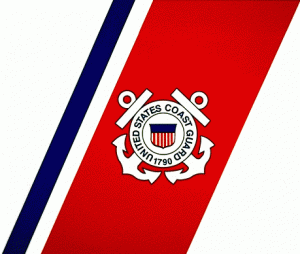 The Coast Guard medevaced two men who were reportedly stabbed aboard a fishing vessel 40 miles south of Pensacola, Florida, Sunday. Coast Guard Sector Mobile watchstanders received a report of two crewmembers reportedly being stabbed by a third crewmember aboard the commercial fishing vessel Billy B. Watchstanders directed the launch of a Coast Guard Air Station New Orleans MH-65 helicopter aircrew, the Coast Guard Cutter Kingfisher crew, and a Coast Guard Station Pensacola 45-foot Response-Boat Medium boatcrew with Sector Mobile Enforcement personnel aboard. The Kingfisher arrived on scene at 8:46 p.m. and brought the two crewmembers aboard. The MH-65 helicopter crew arrived on scene at 9:49 p.m. and hoisted the men and transferred them to Pensacola Baptist Hospital. One crewmember was reported in stable condition and the other in critical condition. The boatcrew detained the third crewmember and took the Billy B in tow en route to Perdido Pass, Alabama, with the Kingfisher as an escort. The incident is under investigation. –USCG– 13:03
The Coast Guard medevaced two men who were reportedly stabbed aboard a fishing vessel 40 miles south of Pensacola, Florida, Sunday. Coast Guard Sector Mobile watchstanders received a report of two crewmembers reportedly being stabbed by a third crewmember aboard the commercial fishing vessel Billy B. Watchstanders directed the launch of a Coast Guard Air Station New Orleans MH-65 helicopter aircrew, the Coast Guard Cutter Kingfisher crew, and a Coast Guard Station Pensacola 45-foot Response-Boat Medium boatcrew with Sector Mobile Enforcement personnel aboard. The Kingfisher arrived on scene at 8:46 p.m. and brought the two crewmembers aboard. The MH-65 helicopter crew arrived on scene at 9:49 p.m. and hoisted the men and transferred them to Pensacola Baptist Hospital. One crewmember was reported in stable condition and the other in critical condition. The boatcrew detained the third crewmember and took the Billy B in tow en route to Perdido Pass, Alabama, with the Kingfisher as an escort. The incident is under investigation. –USCG– 13:03
Trump team nears decision on national monuments
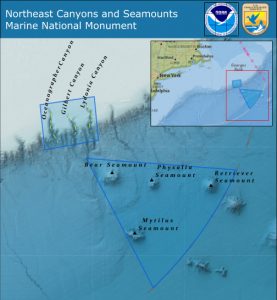 As Interior Secretary Ryan Zinke approaches the 24 August deadline for his recommendations to President Donald Trump on whether to alter dozens of national monuments, conservation proponents say it remains all but impossible to predict which sites the administration could target for reductions or even wholesale elimination.,,, Obama created the first Atlantic marine monument in 2016 when he designated nearly 5,000 square miles for preservation off the coast of Massachusetts.,, The Boston Globe reported that Zinke appeared sympathetic while meeting with about 20 representatives of New England’s seafood industry. “When your area of access continues to be reduced and reduced … it just makes us noncompetitive,” Zinke said at the time. “The president’s priority is jobs, and we need to make it clear that we have a long-term approach to make sure that fishing fleets are healthy.” click here to read the story 11:38
As Interior Secretary Ryan Zinke approaches the 24 August deadline for his recommendations to President Donald Trump on whether to alter dozens of national monuments, conservation proponents say it remains all but impossible to predict which sites the administration could target for reductions or even wholesale elimination.,,, Obama created the first Atlantic marine monument in 2016 when he designated nearly 5,000 square miles for preservation off the coast of Massachusetts.,, The Boston Globe reported that Zinke appeared sympathetic while meeting with about 20 representatives of New England’s seafood industry. “When your area of access continues to be reduced and reduced … it just makes us noncompetitive,” Zinke said at the time. “The president’s priority is jobs, and we need to make it clear that we have a long-term approach to make sure that fishing fleets are healthy.” click here to read the story 11:38
Congress Picks Sides on Trump Plan to Expand Offshore Drilling
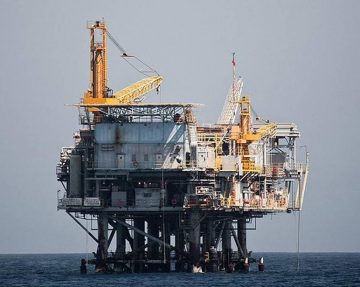 President Donald Trump’s plan to expand offshore oil drilling spurred dueling letters from members of Congress last week, 118 of whom say the plan is critical for U.S. energy security, while 69 others doubt it — plus nearly 18,000 letters of public comment, most of them opposing expanded drilling. Only 6 percent of the U.S. Outer Continental Shelf is available for leasing to oil and gas drillers from 2017 to 2022, under a drilling plan completed in the final days of President Barack Obama’s presidency. The shelf is 1.7 billion acres of submerged federal land from 3 nautical miles off the coastline, state-regulated waters, to 200 nautical miles out. click here to read the story 11:06
President Donald Trump’s plan to expand offshore oil drilling spurred dueling letters from members of Congress last week, 118 of whom say the plan is critical for U.S. energy security, while 69 others doubt it — plus nearly 18,000 letters of public comment, most of them opposing expanded drilling. Only 6 percent of the U.S. Outer Continental Shelf is available for leasing to oil and gas drillers from 2017 to 2022, under a drilling plan completed in the final days of President Barack Obama’s presidency. The shelf is 1.7 billion acres of submerged federal land from 3 nautical miles off the coastline, state-regulated waters, to 200 nautical miles out. click here to read the story 11:06
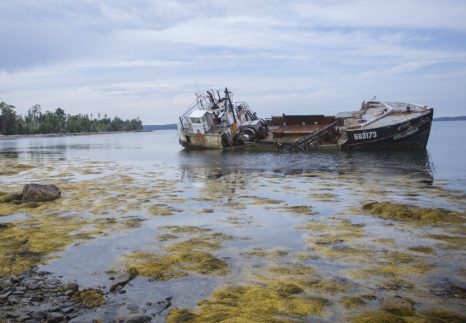
Abandoned wooden fishing vessel plagues island off Bristol
Thirty years before it washed up on Jimmy Ellsworth’s island shoreline as a rusted derelict, The Columbia was the Maine-built pride of the man credited with helping to jump-start one of New England’s largest modern fisheries. It was the last of a generation of wooden “draggers” that bridged the gap between the age of sail-powered fishing schooners and the rise of steel ships. But by the time Ellsworth saw it drifting toward his property, the 90-foot long F/V Columbia was a hulk without a home after being kicked out of two local harbors. click here to read the story 10:28
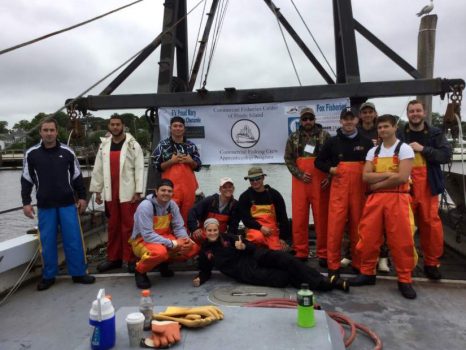
URI, Commercial Fisheries Center combine to create apprentice program in commercial fishing
In early July, a group of apprentices joined a pilot program designed to train new commercial fishermen and women. When the program ended 20 days later, not a single apprentice had dropped out. “We were very pleased with that,” said Barbara Somers, a research associate at the University of Rhode Island’s Department of Fisheries, Animal and Veterinary Science who helped put the program together. “We started with 12 and we ended with 12.” The program, funded by a $100,000 grant from the National Fish and Wildlife Foundation of the National Oceanic and Atmospheric Administration (NOAA), was a joint initiative of URI and the Commercial Fisheries Center of Rhode Island, a non-profit group representing nine fishing organizations. The goal was to produce skilled crews to replenish the declining ranks of the Rhode Island commercial fishery. click here to read the story 08:26
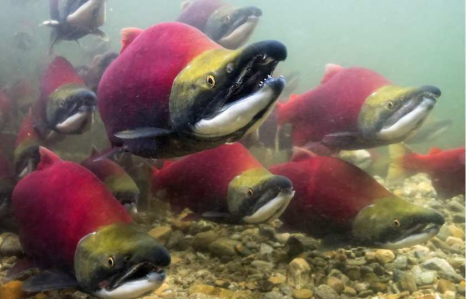
Federal fish policy a flop, study finds
Canada has one of the world’s most robust wild-salmon conservation policies, but has largely failed to execute its plan even as many B.C. salmon populations have fallen into crisis, according to a new study. The Wild Salmon Policy was hailed as “transformative and timely” when it was introduced in 2006, said lead author Michael Price, a biologist at Simon Fraser University. But 12 years in, Fisheries and Oceans Canada (DFO) is unable to determine the health or threat status of at least half of the province’s salmon populations, according to the study published in the Canadian Journal of Fisheries and Aquatics. click here to read the story 07:29

































